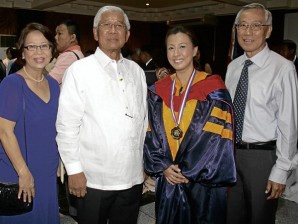
New People’s Army logo. Ranking officials of the Communist Party of the Philippines are divided over the imposition of permit to campaign fees by its armed wing NPA on candidates for the May elections, the Philippine National Police said Monday, Feb. 18, 2013.
MANILA, Philippines—Ranking officials of the Communist Party of the Philippines (CPP) are divided over the imposition of permit to campaign fees by its armed wing, the New People’s Army (NPA), on candidates for the May elections, the Philippine National Police said Monday.
Director Lina Sarmiento, chief of the PNP Directorate for Police Community Relations, said certain “party hard-liners in the local communist movement are embarrassed” over the collection of the “permit to campaign/permit to win” fees from politicians.
She said police and military intelligence units found that the insurgents had been asking for as much as P5 million from local candidates before they could campaign in areas controlled by the rebels.
“Security analysts say this policy of the CPP-NPA has caused a rift and disagreement among senior party members, including staunch party hard-liners, due to conflicting ideological and policy differences,” Sarmiento said in a statement.
She, however, did not identify the CPP leaders opposed to the collection of campaign fees.
Sarmiento said demanding money from politicians had become “very embarrassing and unacceptable to some party hard-liners who believe that such a policy only serves the personal interest of the imperial masters of the NPA red fighters in the CPP Central Committee.”
“The CPP/NPA has continued to arrogantly stand by the correctness of its patently unlawful policy of terror on candidates and political parties who will not (comply with) this scheme of criminal extortion,” she said.
The PNP on Monday warned candidates that they faced criminal charges if they paid “campaign fees” to the NPA.
PNP Director General Alan Purisima said he had directed police units in the provinces to intensify their intelligence operations to thwart the CPP’s collection of money from those seeking elective posts.
“Let me remind the would-be victims of this criminal extortion scheme of the CPP-NPA that the act of giving any amount or item of value to the communist terrorists is tantamount to disloyalty punishable under the Revised Penal Code,” Purisima said in a statement.—With a report from Michael Lim Ubac


